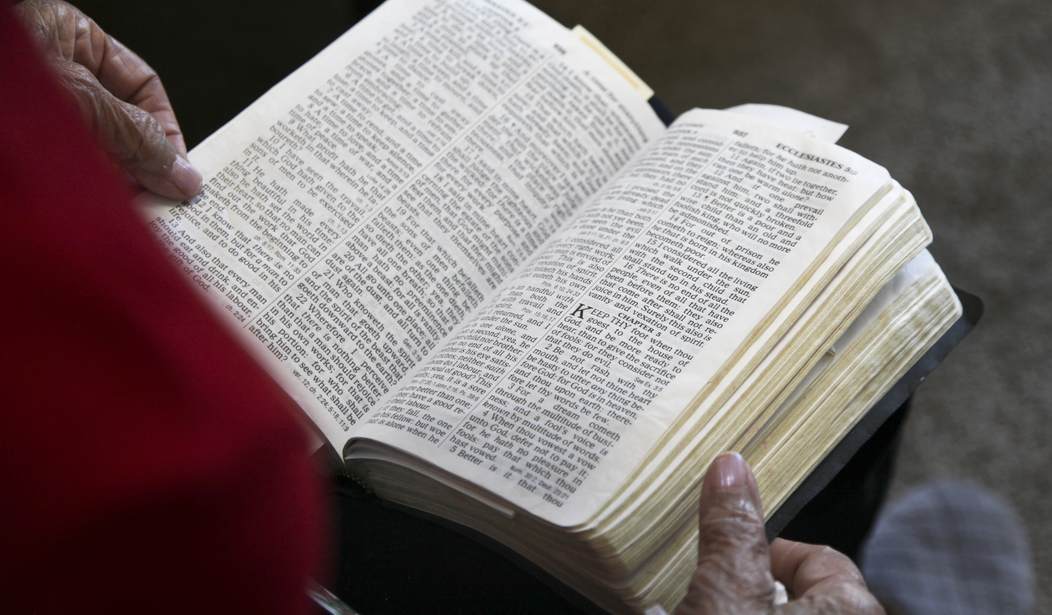America’s founding was deeply influenced by the principles of Christianity. While our nation has not always lived up to our ideals, the principle of human dignity and the promises of “liberty and justice for all,” articulated in 1776, still stirs our hearts today.
Our Declaration of Independence and Constitution are utterly unique in the history of nations. They were framed under the influence of a Biblical understanding of life, history, government, and human nature. We desperately need to return to this understanding. While the earliest settlers were not saints, they were overwhelmingly professing Christians—pilgrims, missionaries, and pioneers. The composition of the early colonies at the time of the American Revolution was 98% Protestant. Most of our Founding Fathers self-identified as Christians, even though they had their blind spots. Yet many of their actions gave testimony to their faith, including appointing chaplains, issuing calls for prayer and fasting, maintaining established churches in the states, and using federal funds to promote religion and morality in the schools, because they believed it was necessary for good government.
Our founding documents were also deeply influenced by Christian principles. In fact, I like to think of it this way: Our three great founding documents were the Declaration of Independence, the Constitution, and the Bible. “The Bible?” you say. Yes, it was a kind of spiritual constitution for most Americans, let alone the book that shaped their Western world. They believed it was the most important book in history. Why? Because it set forth divine revelation and God’s moral law. It promoted wisdom, justice, virtue, dignity, and goodness, besides revealing who God is and his redemptive work through Jesus Christ. While we were not founded as an explicitly Christian nation, the Bible and especially the Biblical idea of covenantalism (which gave birth to constitutionalism) deeply influenced both the Declaration of Independence and the Constitution.
Recommended
The Declaration was the defining statement of the American idea—the “why” of America. We would be founded not on race, ethnicity, or class, but on an idea—the Biblical idea that all men are created equal and are endowed by their Creator with certain inalienable Rights. This was a different kind of freedom than that articulated in the French Revolution. The American Revolution was not against God and his created order, but against the tyranny of a lawless king who exceeded the bounds of his authority. Our Founders proposed, not total freedom, not a freedom from God, but a freedom under God, an ordered liberty. The state would not be God, for the Declaration itself refers to God as Creator, Supreme Judge, and the One who guides all things by his providence. The Declaration was the greatest political statement of human liberty ever written. The 56 men who signed it staked everything on its affirmations; they pledged to each other their lives, their fortunes, and their sacred honor.
The Constitution with its Bill of Rights and Amendments, is the “how” of America. It is a kind of national covenant, like the covenants of the Hebrew Scriptures. It served as a framework around the Declaration of Independence. It was to be an agreement about our politics, whose affirmations of maximal individual freedom were bound by checks and balances and the separation of powers. While it contains only one direct reference to God (in Article VII), it was determined to seek the blessings of government. Moreover, its ideas were deeply influenced by the Scriptures, i.e., that we would be a nation of laws, and that the rule of law would be over all with equal justice under the law. It was a belief in human sinfulness that made the Founders suspicious of concentrated power. So they set forth that the enumerated powers would be separated and limited to protect people from abusive government. Some 233 years later, this Constitution has been in effect longer than any other constitution.
Though influenced by the Bible, the American Founders did not design a constitutional order for fellow believers, but they drew from their Christian convictions to create a constitutional order that benefits all Americans.
Sadly, today there is a revolt against Biblical truth, constitutional order, and the kind of ordered liberty articulated in the Declaration. These truths are rarely taught in our schools. Most college students graduate without reflecting deeply on them or even reading these foundational documents. As we lose this knowledge, we are in grave danger of losing the blessings of liberty in our generation and seeing our republic slip away.
In an earlier age of American higher education, most colleges not only taught the Bible, but also revered the American founding documents. In fact, many of our nation’s most prestigious colleges were originally designed to train Christian ministers. Their educational model boldly taught competence, character, and Christ-centered faith. But that is no longer the case. How far our educational institutions have fallen from this noble calling is now evident everywhere. These days, too many colleges and universities are preoccupied with divisiveness of identity politics, teaching students to despise our nation’s founding.
In this respect, Colorado Christian University (CCU) is different. We are old-school. We live by that earlier vision of higher education and have done so since our founding in 1914.
It is up to “We the People” to form a “more perfect union” and never fail to gratefully acknowledge the hand of God in the founding of our nation, nor forget His presence today.
Returning to these three documents, will go a long way toward preserving the blessings of liberty today and for generations to come.
























Join the conversation as a VIP Member